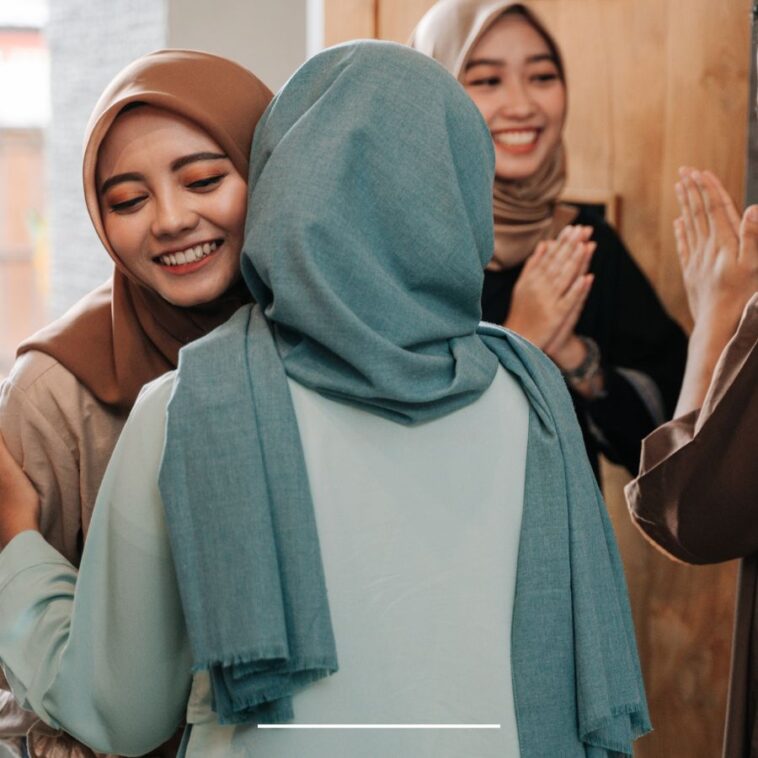Eid al-Fitr (عید الفطر) and Eid al-Adha (فساد کی عید) are two of the most significant festivals in the Islamic calendar, celebrated by Muslims worldwide. As a gesture of goodwill, wishing “Eid Mubarak” (meaning “Blessed Eid”) is a beautiful way to extend warm greetings and express your appreciation for these sacred occasions. By understanding the significance of Eid and following proper etiquette, you can strengthen cultural bridges and create meaningful connections.
The Significance of Eid
- Eid al-Fitr: This joyous celebration marks the end of Ramadan, the holy month of fasting, spiritual reflection, and devotion. It is a time for gratitude, feasting, and charitable giving, where Muslims gather with family and friends to express their thankfulness and share in the blessings of the occasion. In many regions, Eid al-Fitr is marked by special prayers in mosques or open spaces, followed by visits to family and friends, exchanging gifts, and enjoying traditional delicacies like sewaiyan (vermicelli pudding) in South Asia or kahk (sweet cookies) in the Middle East.
- Eid al-Adha: Also known as the “Festival of Sacrifice,” Eid al-Adha commemorates Prophet Ibrahim’s unwavering faith and willingness to sacrifice his son as an act of obedience to God. It emphasizes the values of sacrifice, compassion, and devotion, reminding Muslims of the importance of selflessness and generosity towards others. During Eid al-Adha, many Muslim families engage in the ritual of sacrificing an animal, such as a lamb or a goat, and distributing a portion of the meat to the less fortunate. This act symbolizes the willingness to sacrifice for the sake of others and promote unity within the community.
When to Wish Eid Mubarak
The appropriate time to wish “Eid Mubarak” is during the three-day celebrations of Eid al-Fitr and Eid al-Adha. However, it is customary and respectful to extend your greetings starting from the night before Eid until the end of the third day of the festivities.
How to Wish Eid Mubarak
- Verbal Greetings: Approach your Muslim friends, colleagues, or acquaintances with a warm smile and a sincere “Eid Mubarak (عيد مبارك) !” This simple phrase carries immense cultural significance and conveys your heartfelt wishes for a blessed and joyous celebration.
- Handshakes and Hugs: Depending on cultural norms and personal comfort levels, you may offer a handshake or a respectful hug when exchanging Eid greetings. Always be mindful of personal boundaries and follow the lead of the person you’re greeting.
- Gifts and Tokens: Giving gifts or tokens of appreciation during Eid is a thoughtful gesture that symbolizes generosity, love, and camaraderie. A popular tradition, especially during Eid al-Fitr, is giving “Eidi (عِیدی)” – small amounts of money or new currency notes as gifts, primarily to children and younger relatives. This practice promotes generosity and brings joy to the recipients. One can also consider small gifts such as traditional sweets like baklava or ma’amoul (date-filled cookies), henna cones for intricate hand decorations, or culturally appropriate home decor pieces like lanterns or decorative plates.
- Digital Wishes: In our digital age, sending Eid Mubarak wishes via text, email, or social media platforms is a convenient and widely accepted practice.
Embracing Cultural Sensitivity
- Respect Religious Practices: Eid is a deeply religious and cultural occasion. Avoid discussions or jokes that may be perceived as disrespectful or insensitive towards Islamic beliefs and practices.
- Understanding Fasting: During Ramadan, Muslims fast from sunrise to sunset. It is courteous not to offer food or drink to someone who is fasting unless they indicate otherwise. If you’re unsure, it’s best to ask politely.
- Dress Code: When attending Eid gatherings or events, dress modestly and appropriately to show respect for cultural traditions. Avoid revealing or overly tight clothing.
- Cultural Diversity: Recognize that Eid traditions may vary among different Muslim communities and regions. For instance, in some parts of South Asia, women often adorn their hands and feet with intricate henna designs, while in parts of the Middle East, it is common to exchange small gifts of money or sweets with children.
- Avoid Assumptions: Refrain from making assumptions about someone’s observance of Eid or their cultural background. Every individual and community may have unique traditions and practices.
Addressing Common Misconceptions
| Misconception | Clarification |
|---|---|
| Eid is a single day of celebration. | Both Eid al-Fitr and Eid al-Adha are celebrated for three days, with the first day being the most significant. |
| Eid is a solemn occasion. | While Eid carries religious significance, it is a joyous and festive occasion celebrated with family, friends, and the community. |
| Eid is only celebrated by Arabs. | Eid is celebrated by Muslims worldwide, regardless of ethnicity or cultural background. Traditions may vary, but the essence of the occasion remains the same. |
Can a non-Muslim, say “Eid Mubarak!” to Muslims?
Yes, absolutely! Non-Muslims are more than welcome to wish “Eid Mubarak” to their Muslim friends, colleagues, neighbors, or acquaintances during the Eid celebrations.
Extending the greeting of “Eid Mubarak” (meaning “Blessed Eid”) is a gesture of goodwill, respect, and acknowledgment of the cultural and religious significance of Eid for Muslims. It is a way to share in the joy and festivities of the occasion and foster a sense of unity and understanding among people of different faiths.
In fact, many Muslims appreciate and feel touched when non-Muslims take the time to learn about and acknowledge their religious celebrations. It shows a genuine interest in understanding and respecting their culture and beliefs.
There is no requirement or expectation for non-Muslims to celebrate Eid themselves, but the simple act of wishing “Eid Mubarak” can go a long way in building bridges, promoting inclusivity, and creating a sense of community.
It’s important to note that the greeting should be extended with sincerity and respect, without any underlying motive or agenda. As long as the intention is pure and the greeting is offered in a spirit of kindness and goodwill, Muslims will undoubtedly appreciate the gesture.
Celebrating with Respect and Joy
By using the proper salutation, showing respect through gestures, and being mindful of cultural sensitivities, you can convey your heartfelt wishes in a meaningful and respectful manner.
Embrace the spirit of Eid by extending your warmest greetings to your Muslim friends, colleagues, and neighbors. Celebrate the joy of these sacred occasions and foster an environment of inclusivity, harmony, and mutual respect.
Eid Mubarak to you and your loved ones! May your celebrations be filled with blessings, peace, and lasting memories.



GIPHY App Key not set. Please check settings